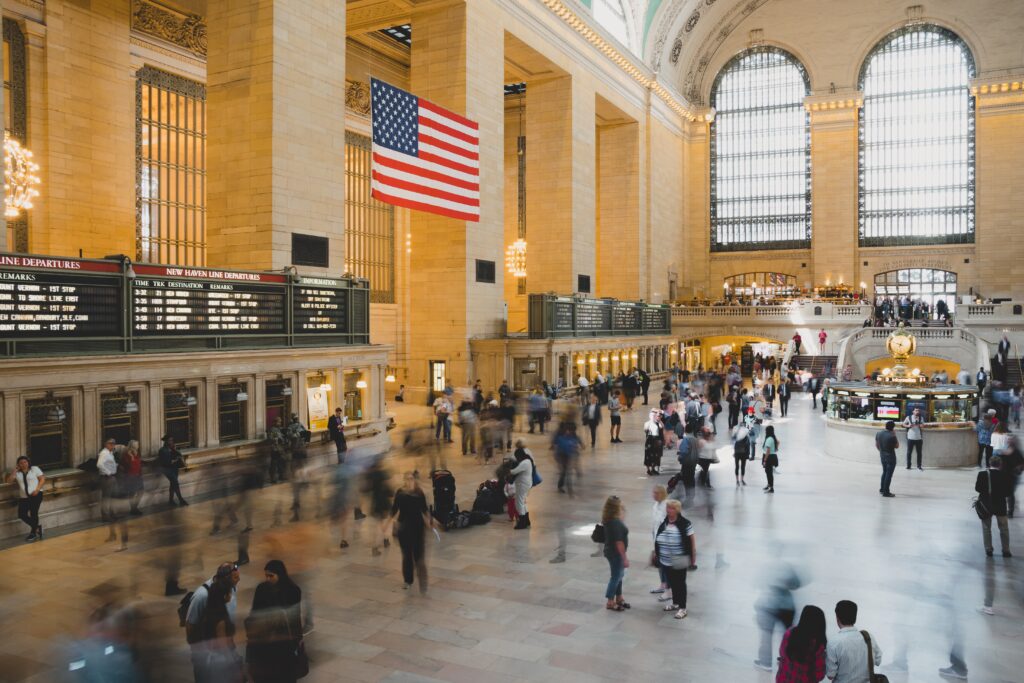
Although discrimination claims often arise in the employment context, many anti-discrimination laws protect people in arenas far beyond that setting. New York State and City anti-discrimination laws – the New York State Human Rights Law (“NYSHRL”) and New York City Human Rights Law (“NYCHRL”), respectively – provide that it is unlawful for a “place of public accommodation” to engage in discrimination on the basis of, among others, race, color, age, national origin, alienage or citizenship, gender, sexual orientation or disability.
What is a Place of Public Accommodation?
The term “public accommodation” is broadly construed under both laws. Under NYSHRL, a public accommodation is defined as including any public or private establishment, including, but not limited to:
- Inns, taverns, road houses, hotels, and motels;
- Restaurants and saloons;
- Any store, park or enclosure where spirituous or malt liquors are sold;
- Ice cream parlors, confectionaries, and soda fountains;
- Wholesale and retail stores and establishments;
- Clinics and hospitals;
- Bath-houses, swimming pools, and laundries;
- Barber shops and beauty parlors;
- Theatres, motion picture houses, and music halls;
- Race courses, amusement and recreation parks, fairs, skating rinks, bowling alleys, golf courses, shooting galleries, billiard and pool parlors;
- Trailer camps and resort camps;
- Garages and all public conveyances, as well as the stations and terminals thereof;
- Travel or tour advisory services, agencies or bureaus; and
- Public halls, public rooms, public elevators, and any public areas of any building or structure.
Under NYCHRL, the term encompasses any “providers, whether licensed or unlicensed, of goods, services, facilities, accommodations, advantages or privileges of any kind, and places, whether licensed or unlicensed, where goods, services, facilities, accommodations, advantages or privileges of any kind are extended, offered, sold, or otherwise made available.”
What is Not a Place of Public Accommodation?
While the above definitions are broad, NYSHRL and NYCHRL provide express exceptions, including for any “distinctly private club” with less than 100 (under NYSHRL) or 400 (under NYCHRL) members. This exception raises further questions, including, what it means for a club to be “distinctly private.” Generally speaking, the answer to this question turns on factors such as whether it (1) has mechanism established to carefully screen applicants on any basis or no basis at all, i.e., membership is determined by subjective, not objective factors, (2) limits the use of the facilities and services of the organization to members and bona fide guests of members, (3) is controlled by the membership, (4) is nonprofit and operated solely for the benefit and pleasure of the members, and (5) directs its publicity exclusively and only to members for their information and guidance.
In addition, NYSHRL provides exceptions for certain educational institutions.
What Does the Law Mean for Businesses?
Subject to certain exceptions, this means retailers, business owners and service providers, are prohibited from refusing service or providing discriminatory service to customers and members of the public. Put another way, when a business provides discriminatory treatment of any kind to a customer, it is not a mere customer service issue, but a discriminatory act prohibited by law.
As we move to a more pervasively digital society, there has been debate over whether a website is considered a place of public accommodation under law. If websites are places of public accommodation, then this triggers anti-discrimination protection for members of the public who interact with any web-based interface. Significantly, this means that such websites must be accessible and usable to persons with disabilities – and a failure to provide such a website could be considered discriminatory towards groups of people with certain limitations. The prevailing consensus is that websites are in fact places of public accommodation under both NYSHRL and NYCHRL.
If you believe you’ve experienced unlawful discrimination in a place of public accommodation, call (212) 257-6800 or complete the form below to speak to an attorney about your legal rights.
| David E. Gottlieb Partner |
| WIGDOR LLP 85 Fifth Avenue, New York, NY 10003 T: (212) 257-6800 | F: (212) 257-6845 |
| dgottlieb@wigdorlaw.com wigdorlaw.com |
Call Now: (212) 257-6800